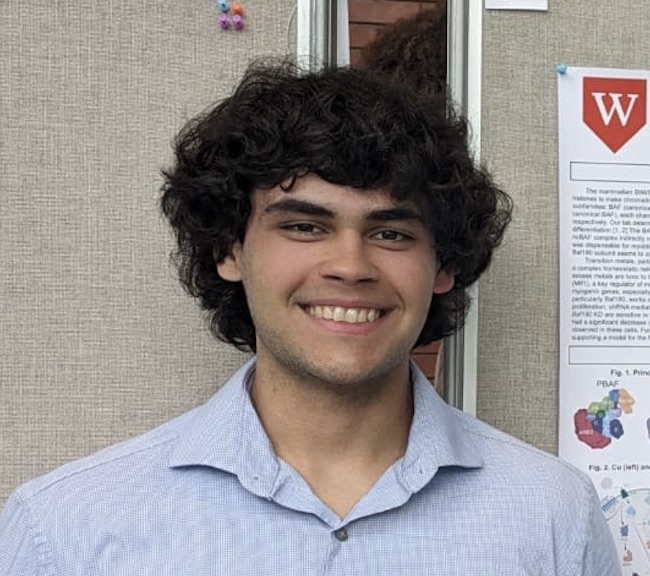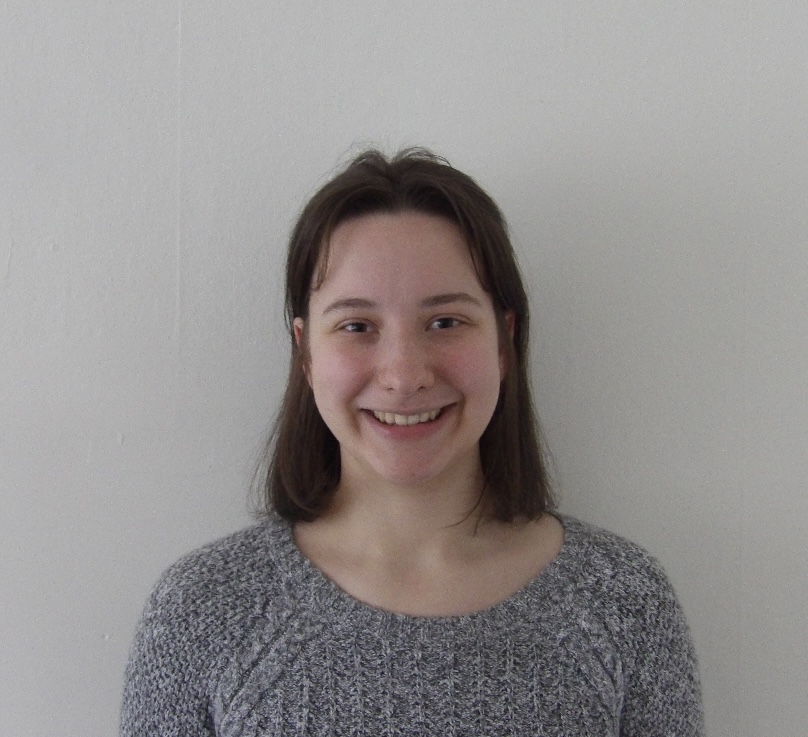By Kate Marriott
This year, two Wesleyan students, Antonio Rivera (‘26) and Kaylin Maher (‘26), were awarded the Barry Goldwater Scholarship, one of the most prestigious national awards for undergraduates pursuing research careers in the natural sciences. The scholarship, which is awarded to sophomores or juniors pursuing research careers in science, mathematics, or engineering, provides undergraduate tuition support and connects recipients to a nationwide network of aspiring scientists.

Rivera, a Chemistry and Molecular Biology and Biochemistry (MB&B) double major with a minor in Molecular Biophysics, applied after encouragement from his principal investigator. As a first-generation, low-income student, the combination of scholarship funds and national recognition made applying to the Goldwater “a no-brainer” for him. Rivera highlighted his research experience at Wesleyan, first examining copper-binding proteins under the guidance of Professor Teresita Padilla-Benavides in the MB&B Department, and now working alongside Professor Michael Calter on anti-viral drug synthesis in the Chemistry Department. These experiences prepared Rivera well for writing the research essay component of the Goldwater Scholarship application.

Maher, an MB&B major with a minor in Education Studies, discovered the opportunity through the Office of Fellowships website. “I didn’t have publications or conference experience, but I realized I could still tell a story about my passion for research,” she said. She emphasized the importance of not being afraid to try new things; even though approaching professors as an underclassman can feel intimidating, her ability to push past that anxiety led to extensive research experience and, ultimately, being a Goldwater recipient. While working with Professor Scott Holmes in the MB&B Department, Maher is currently exploring how histone proteins condense and organize DNA.
Both scholars described the application process as deeply reflective, requiring them to articulate not only what they have accomplished academically, but also where they hope to go. Rivera emphasized the value of “being your most genuine self,” while Maher urged future applicants to be confident in themselves and to show that research is “something you want to do long term.”
Associate Director for Fellowships at the Fries Center for Global Studies, Dr. Erica Kowsz, notes that it is exciting to have two Goldwater Scholars at Wesleyan in the same year. “Students who get engaged in undergraduate research at Wesleyan are well-positioned as Goldwater applicants. The selection committee looks for students’ intellectual contributions to research, contributions that Wesleyan’s most engaged science students may well be making already in the junior year.”
Students in the Class of ’27 or ’28 who might be interested in applying for the Goldwater Scholarship can find more information on the Office of Fellowships website and should write to fellowships@wesleyan.edu to be added to the mailing list for Goldwater application updates.


